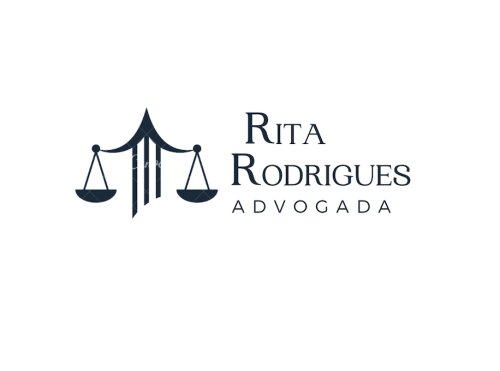Best ADR Mediation & Arbitration Lawyers in Porto
Share your needs with us, get contacted by law firms.
Free. Takes 2 min.
List of the best lawyers in Porto, Portugal
About ADR Mediation & Arbitration Law in Porto, Portugal
Alternative Dispute Resolution (ADR) methods, including mediation and arbitration, have become increasingly important in Porto, Portugal, as efficient ways to resolve conflicts outside of traditional court processes. ADR seeks to provide faster, less expensive, and confidential pathways to settle disputes arising in commercial, civil, family, labor, and other legal areas. The Portuguese legal system actively encourages the use of mediation and arbitration before or alongside litigation, reflecting the country's commitment to modernizing dispute resolution and reducing the burden on the courts.
Why You May Need a Lawyer
Legal assistance can be invaluable when navigating ADR mediation and arbitration in Porto. Having a lawyer is particularly helpful in the following situations:
- Understanding your rights and obligations during mediation or arbitration
- Drafting or reviewing contracts that contain arbitration or mediation clauses
- Assisting in the enforcement of an arbitral award or mediation agreement
- Choosing the appropriate ADR method for your specific dispute
- Representing your interests during negotiations or formal hearings
- Ensuring proper selection of mediators or arbitrators
- Assisting in cross-border or international disputes
Even though ADR is often less formal than court proceedings, legal support can ensure your rights are fully protected and that agreements reached are fair and enforceable.
Local Laws Overview
In Portugal, mediation and arbitration are governed primarily by the Mediation Law (Law no. 29/2013 of 19 April) and the Voluntary Arbitration Law (Law no. 63/2011 of 14 December) respectively. Key aspects relevant to ADR in Porto include:
- Mediation: Mediation is voluntary, confidential, and allows parties to reach a mutually agreed solution with the assistance of a neutral mediator. The outcome is only binding if both parties sign a written agreement.
- Arbitration: Arbitration offers a binding decision made by one or more arbitrators. Arbitration can be ad hoc or institutional, and the proceedings can be tailored to the needs of the parties involved.
- Recognition and Enforcement: Both mediated agreements and arbitral awards can be recognized and enforced by the courts if necessary. Portuguese arbitration law is largely harmonized with international standards, such as the UNCITRAL Model Law and the New York Convention.
- Language and Venue: Parties have the autonomy to select the language, venue, and procedural rules for their ADR process, allowing flexibility in cross border cases.
Frequently Asked Questions
What is the difference between mediation and arbitration?
Mediation is a process where a neutral third party helps disputing parties find a mutually acceptable solution, while arbitration results in a binding decision by an appointed arbitrator or panel.
Are agreements reached in mediation legally binding in Porto?
Yes, mediated agreements are legally binding once both parties sign the agreement. The court can enforce these agreements if necessary.
Can I choose my own mediator or arbitrator?
Yes, parties usually agree on the selection of mediators or arbitrators. If they cannot decide, local institutions can assist with appointments.
Is participation in mediation or arbitration mandatory in Porto?
Participation is generally voluntary unless an existing contract specifies that parties must use ADR before pursuing litigation.
Are ADR proceedings confidential?
Yes, both mediation and arbitration processes are confidential. Details of the dispute and outcome are not made public.
Do ADR decisions have the same legal effect as court judgments?
Arbitral awards are legally binding and can be enforced similarly to court judgments. Mediated agreements can be made enforceable if signed by the parties and, in some cases, homologated by the court.
How long does ADR usually take?
ADR timelines vary but are generally much shorter than court litigation. Many cases resolve within a few weeks or months, depending on complexity and the parties' cooperation.
What types of disputes can be resolved through ADR in Porto?
ADR is suitable for a wide range of disputes including commercial, civil, family, labor, and even some administrative matters, provided both parties agree to the process.
Can foreign parties use ADR in Porto, Portugal?
Yes, foreign parties can participate in ADR processes in Porto. The legal framework supports both national and international disputes.
Do I need a lawyer to participate in ADR?
While not strictly required, it is wise to have legal counsel to ensure your interests are protected and that any resulting agreement is legally sound and enforceable.
Additional Resources
If you are seeking more information or assistance regarding ADR mediation and arbitration in Porto, consider the following resources and institutions:
- Portuguese Ministry of Justice
- Centro de Arbitragem Comercial (Commercial Arbitration Center)
- Instituto dos Registos e do Notariado (Institute of Registries and Notary, for mediation in family matters)
- Associação Portuguesa de Arbitragem (Portuguese Arbitration Association)
- Local law firms specializing in ADR
- Centro de Informação de Consumo e Arbitragem do Porto (CICAP)
- Municipal ADR information centers
Next Steps
If you are considering ADR mediation or arbitration in Porto, start by gathering all relevant documents and information about your dispute. Next, consult an experienced lawyer specializing in ADR to evaluate your options and help you decide which dispute resolution method best suits your situation. Your lawyer can guide you through each step, from drafting ADR clauses to representing you in proceedings and ensuring that any agreement or award is properly enforced. Taking these steps will help you resolve your legal matter efficiently and with confidence.
Lawzana helps you find the best lawyers and law firms in Porto through a curated and pre-screened list of qualified legal professionals. Our platform offers rankings and detailed profiles of attorneys and law firms, allowing you to compare based on practice areas, including ADR Mediation & Arbitration , experience, and client feedback.
Each profile includes a description of the firm's areas of practice, client reviews, team members and partners, year of establishment, spoken languages, office locations, contact information, social media presence, and any published articles or resources. Most firms on our platform speak English and are experienced in both local and international legal matters.
Get a quote from top-rated law firms in Porto, Portugal — quickly, securely, and without unnecessary hassle.
Disclaimer:
The information provided on this page is for general informational purposes only and does not constitute legal advice. While we strive to ensure the accuracy and relevance of the content, legal information may change over time, and interpretations of the law can vary. You should always consult with a qualified legal professional for advice specific to your situation.
We disclaim all liability for actions taken or not taken based on the content of this page. If you believe any information is incorrect or outdated, please contact us, and we will review and update it where appropriate.














